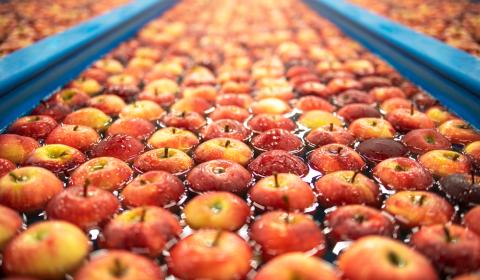
Organic certification: ensuring compliance with updated EU legislation
Organic produce is in high demand worldwide, with the sector predicted to grow to almost $400 billion by 2025. This rapidly growing and dynamic industry needs legislation that reflects the changing landscape of the sector and meets evolving requirements.
January 1, 2022, saw the EU’s new organic regulation 2018/848 come into force. The regulation’s goal is to ensure fair competition for farmers, reduce fraud and boost consumer confidence – but what specific changes will these new rules bring about?
Guaranteeing organic throughout the value chain
Organic certification goes beyond just farming, encompassing the entire supply chain from producers and distributors to manufacturers and retailers. The EU’s latest legislation applies to both European businesses, and those intending to import into the bloc. Under regulation 2018/848, certification assures consumers that strict conditions have been fulfilled along the entire value chain, regardless of country of origin.
These updated importation rules could provide a growth opportunity for global operators. The EU imported 3.2 million tons of organic products from non-EU countries in 2020[1]. Demonstrating that imported goods reach the same standards as EU produce could have positive ramifications – and enable certified operators to harness a competitive advantage.
Streamlining processes
In a bid to simplify production rules, the new legislation phased out several opt-outs and exceptions, as well as exemptions for production in demarcated beds in greenhouses. This complements the introduction of a group certification system aiming at making certification easier for small farmers. The regulation also standardizes processes for reducing the risk of pesticide contamination, while tighter precautions and improved end-to-end supply chain checks have been established[2].
Recognizing market evolution
Under the new legislation, a greater range of products can be marketed as organic, including salt, cork, beeswax and essential oils not intended for consumption. Meanwhile, some products – such as pork and poultry – have additional rearing and production rules with increased consideration for animal welfare. The legislation also covers labeling, allowing products with the indication "EU Agriculture" to contain 5% non-EU ingredients, providing increased flexibility for operators[3].
Improving the system
Updates to the legislation look to make the certification system itself more efficient: annual physical inspections are no longer mandatory for all operators. Instead, they are determined by a risk-based assessment, and designated low-risk facilities can be inspected every 24 months[4]. Moreover, if an organization wishes to certify a product category, only one certification body is required.
Achieving certification with Bureau Veritas
Non-EU country operators have until December 31, 2024, to adapt their activities to meet the new regulation. Leveraging our global expertise and worldwide network of food testing laboratories, our organic certification and auditing services can support organizations in this process
Organic certification from Bureau Veritas demonstrates commitment to stakeholder concerns, compliance with stringent standards, and enables organizations to remain competitive in this thriving market.
Want to find out more about our organic certification offer? LEARN MORE
SOURCES
[1] https://www.intracen.org/layouts/2coltemplate.aspx?pageid=47244640256&id=47244683211
[2] https://ec.europa.eu/info/food-farming-fisheries/farming/organic-farming/future-organics_en
[3] https://ec.europa.eu/info/sites/default/files/food-farming-fisheries/farming/documents/organic-rules-faqs_en_1.pdf
[4] https://www.foodnavigator.com/Article/2021/03/02/The-future-of-organic-farming-in-Europe-How-the-new-Regulation-tightens-the-rules